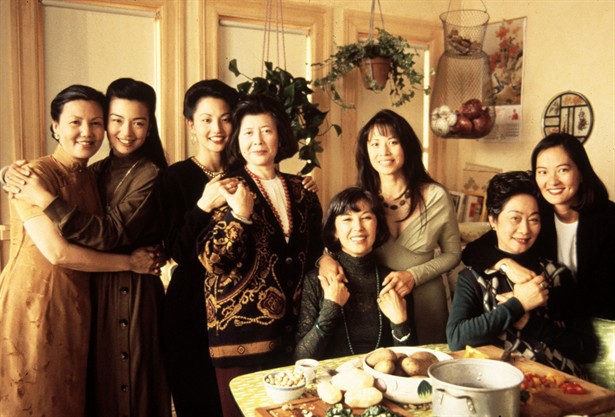The Effects Of A Working Mom On Her Children, According To Science

“Vindication!” read my mom’s email to my brothers and me this morning. “Finally. Whew!”
She was referring, of course, to this report on new research by the Harvard Business School that has found correlations between working moms, “successful” daughters, and “caring” sons.
According to a working paper (pdf) published June 19 by the Harvard Business School, daughters of working mothers are more likely to be employed, hold supervisory positions, and earn more money than the daughters of women who don’t work outside the home. The researchers also found a statistically significant effect on the sons of working women, who are likely to spend more time caring for family members and doing household chores than are the sons of stay-at-home mothers.
Analyzing data from two dozen countries, the researchers concluded that the daughters of employed mothers are 4.5% more likely to be employed themselves than are the daughters of stay-at-home mothers. …
Even more surprising, says Kathleen McGinn, a professor at Harvard Business School and the lead author of the study, is the effect that working mothers have on their daughters’ chances of being a supervisor at work. “We did expect that it would effect employment but we didn’t expect that it would effect supervisory responsibility,” she tells Quartz.
Even after controlling for gender attitudes — to take beliefs regarding gender roles out of the equation — the researchers found that 33% of daughters of working mothers held supervisory roles, compared to only 25% of daughters of stay-at-home moms. “What I take away is that employed mothers create an environment in which their children’s attitudes on what is appropriate for girls to do and what is appropriate for boys to do is affected,” McGinn says.
We don’t really need studies to show positive effects for things, like two-income families, that are economically necessary for a majority of people in our wage-stagnant, employment-insecure world. Still, sure, I’m glad my mom feels vindicated. She was a Type A, perfectionist, Everest-climbing, ballroom dancing, event planning, work-all-day-then-make-our-diaromas-for-us-at-night adrenaline junkie kind of mom; and even if she hadn’t been, DC was expensive. So was the Jewish school we attended, since, as I’ve mentioned, DC’s public options were as notorious as its potholes.
Even by the ’80s, when and where I was growing up, dual-earner families were the norm. Ambitious, highly educated daughters were the norm, too. It was, in many ways, part of our privilege: our mothers worked for the government, at the World Bank, at NIH, at colleges, and at law firms. Of course we, and they, assumed we would too.
If the results of this study sound familiar, it might be because Forbes reported on early findings last month, which held even internationally:
The data showed that men were just as likely to hold supervisory jobs whether or not their moms had worked outside the home. But women raised by working mothers were more likely to supervise others at work.
Or maybe it sounds familiar because it seems self-evident.
How much do fathers and the other men in the family matter? I’d love to see research on that. My father could be old school and patriarchal in the ways he treated my mother, but he believed in me; he treated me as though I was an intellectual from the time that I was three years old. Being much more like him than my mother in temperament, I modeled myself after him. (My mom was a whirlwind! Who could keep up with her?)
Occasionally he said something to me that indicated that he remembered that I was his daughter and not merely his child, like that I should ask my grandma to teach me to bake pies or maybe do something about my hair; and my gender, I think, allowed him to be kinder to me than he was to his sons. Otherwise, he trained me like I was an heir, not a girl. I grew up thinking along those lines, expecting that anything my brothers reached for would be available to me, too, if I was sufficiently talented.
That, in combination with my mother’s example, made me a feminist long before I knew enough to identify as one.
Did your mom work? Do you think that had any effect on your life now, whether you’re an At-Home parent / homemaker or a Very Busy And Important careerist type? Would you probably have ended up wherever you have regardless of your mom’s vocational choices?
Support The Billfold
The Billfold continues to exist thanks to support from our readers. Help us continue to do our work by making a monthly pledge on Patreon or a one-time-only contribution through PayPal.
Comments